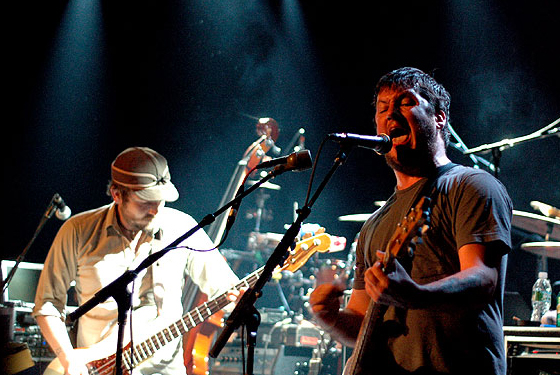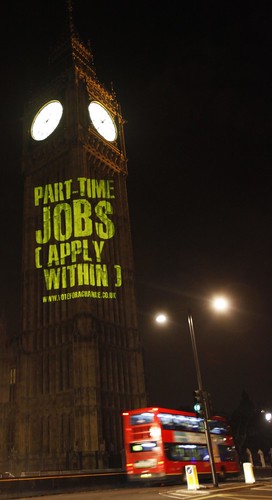
The three main party leaders announced yesterday that before the general election (which most pundits believe will happen on May 6th 2010) three ninety minute TV debates will take place, with Sky the BBC and ITV each assuming hosting responsibilities. The academic Bill Jones, who works tirelessly in politics education, offers his comments here..
It is perhaps worth noting what this means for Prime Ministerial politics in the UK. Let's start with theory. The 'Prime Minister' was a role introduced in the 18th century to help the Monarch with his duties, i.e., Robert Walpole was appointed by George II because of the widening role of government. Indeed, even in the era of the 'fiscal military state' it was felt that a specialist full time role needed to be created.
During the democratic advances of the nineteenth century, the 'Prime Minister' (as he became known, only officially, in the 1880s - hitherto it had been a term of abuse and mocking. PMs had gone by the title 'First Lord of the Treasury', which is still emblazoned on the letterbox of Number 10) became primus inter pares or 'first among equals' as cabinet government developed. However, even as he assumed greater power and responsiblity in the 1900s, rising above his cabinet ministers and wielding the power to make or break a career, he was still merely the leader of the party with the most seats in the Commons. In theory that's all he or she is today...
However, in our media age things have taken on a slightly more Presidential edge. Presidents, as we know, are much more powerful than PMs because of their dual role as head of the government and the state. At a time when image had become more important and ideology less of a sticking point, our leaders have taken on this role with gusto. Thatcher made inroads in the later 1980s when her tenure became increasingly authoritarian (this 'taking power for granted' approach cost her dearly in November 1990). She behaved more like a Head of State than a lowly Prime Minister and earned the ill will of the sovereign, her party and the people as a result. New Labour's fascination with spin and image manipulation has seen Blair and Brown behave more like Presidents than Prime Ministers. Now, we are going to have 'Leader's Debates' in the run up to the election. What does this mean - effectively we are being asked to vote for individuals (like Americans voted for Obama or McCain in 2008). However, in reality we still vote for a local MP. Those less in tune with with how our democracy works may be fooled into thinking that they will vote for the face that most appeals to them on the television screen. The reality is that they will be voting for a candidate in their local area. Only if candidates of the same party are returned to Westminster in large numbers next year can any one of those three faces stand any chance of forming a government. That's how Westminster democracy has functioned for nearly 200 years.
Surely it would be more democratic for constituency MPs to engage and become more visible with local residents by holding many more town hall meetings rather than this 'sham democracy' that will appear on the TV screen. The broadcasters, surely, only approached the leaders with the idea because they were thinking about ratings and potential advertising revenue?
The implication that we are voting for an individual leader at election time has led to people suggesting that our politics is looking increasingly presidential despite that fact that we still elect all of our politicians on the basis of single member plurality. At the moment, theory does not match practice and whilst one could welcome these debates for putting the leaders on the spot and making them appear accountable, they are still rather misleading given the constitutional role of the PM.







